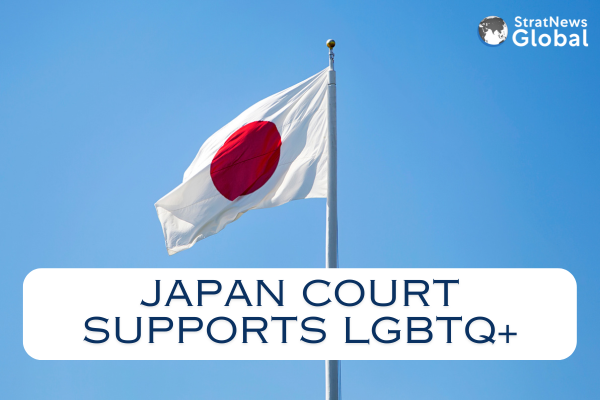A high court in the northern region of Sapporo in Japan has termed the bar on same-sex marriage as unconstitutional. The court in its judgment said that the ruling ban breached citizens’ rights.
The court also said that: “Living in accordance with one’s gender identity and sexual orientation is an inalienable right rooted in important person interests.”
The judge however clarified that the action did not amount to unconstitutionality at present.
The eight plaintiffs, consisting of government and private sector employees in their 40s and 50s living in Tokyo, said legislative inaction on the matter has violated their rights and caused them emotional distress and sought damage from the central government.
The judgment follows a landmark verdict by the Sapporo District Court in 2021 that ruled the ban unconstitutional. After that various courts have ruled against the ban. District courts in Nagoya and Tokyo said in a separate lawsuit that the lack of recognition of same-sex couples is a “state of unconstitutionality.” Osaka’s is the only district court that has ruled the ban constitutional.
Though several municipalities in Japan issue certificates to same-sex marriages, which provides benefits to couples, it does not recognise legal recognition.
Japan is the only country in the Group of Seven nation without legal protection for same-sex unions.
Recent opinion polls show that close to three-fourths of the public backed same-sex as the conservative Liberal Democratic Party of Prime Minister Fumio Kishida opposed it.
Though most of the people want a change in the law, Kishida’s government is yet to disclose any plans to change or review marriage legislation.
There have been a dozen legal cases challenging the marriage ban since 2019 . The government argues that the Constitution presumes marriages are only between heterosexual couples.
Though most of the cases which have come up for hearing have been termed it as unconstitutional by the courts, they have stopped short of awarding compensation.





